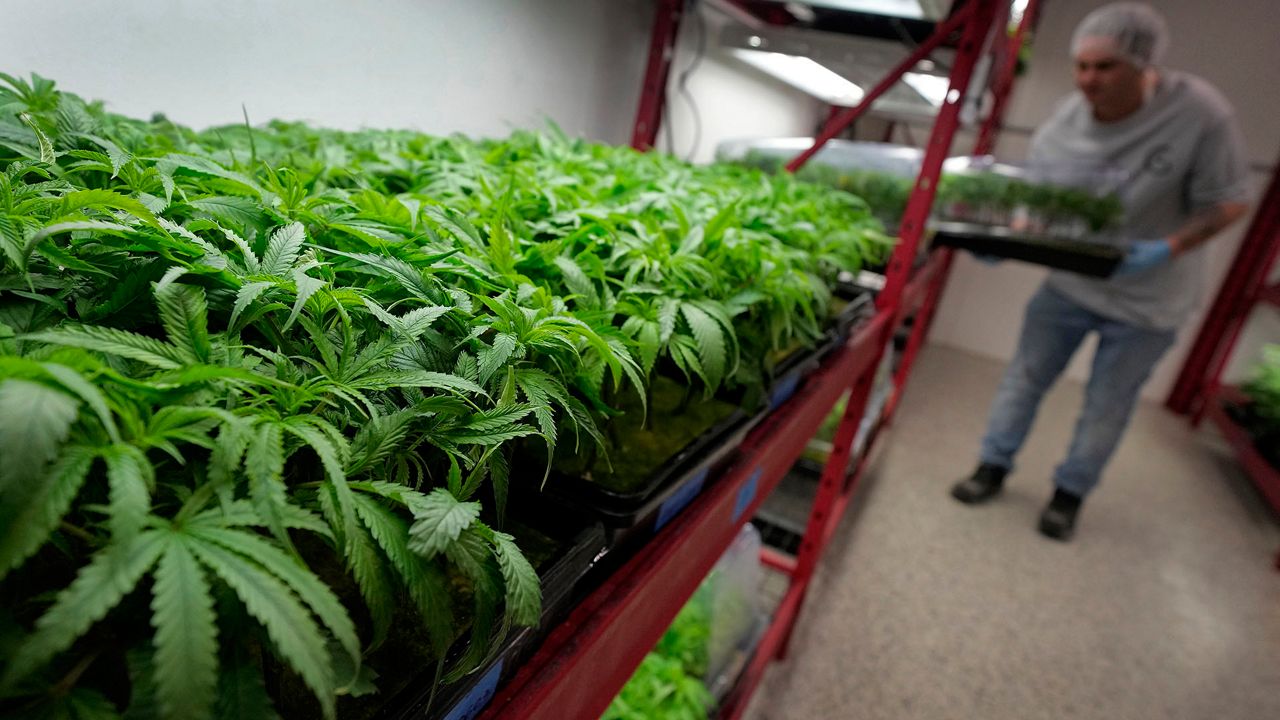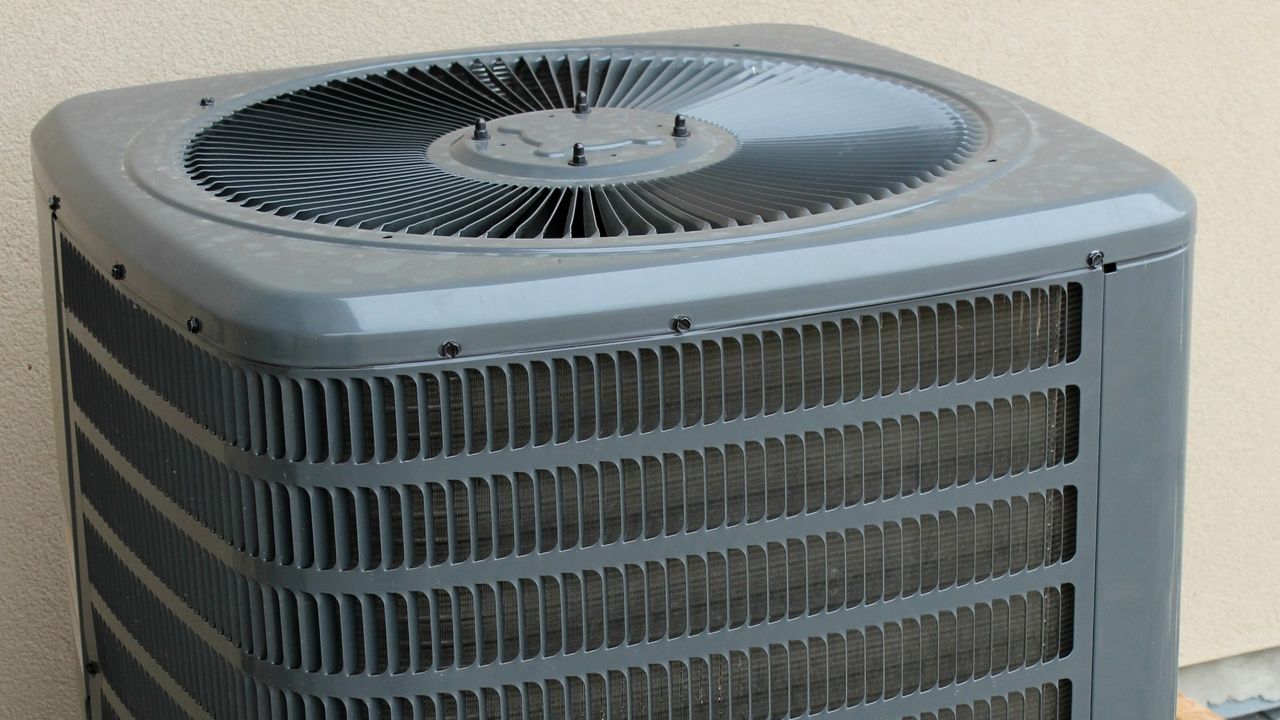A bill legalizing medical marijuana in North Carolina passed a floor vote in the state Senate Tuesday, where it has strong bipartisan support.
The bill, which passed 36-10, will have to have one more vote in the Senate, but that is mostly a pro-forma vote. The bill then heads to the House, where its fate is less certain.
The N.C. Compassionate Care Act, SB3, passed the Senate last year but stalled out in the House. This year’s bill is essentially the same as last year’s with some minor changes. It would legalize medical marijuana in North Carolina through tightly regulated prescriptions and dispensaries.
“It seems to me that the idea is gaining momentum and obviously there’s strong support in the Senate,” said Rep. Jon Hardister, a Guilford County Republican and the majority whip in the House. “In general, it seems like the attitude among members of the House is shifting more in favor of the legislation.”
The bill would only allow medical marijuana to be prescribed to people with “debilitating medical conditions.” In the current proposal, those conditions are:
- Cancer
- Epilepsy
- HIV/AIDS
- Amyotrophic lateral sclerosis (ALS)
- Crohn's disease
- Sickle cell anemia
- Parkinson's disease
- Post-traumatic stress disorder (subject to evidence that an applicant experienced one or more traumatic events)
- Multiple sclerosis
- Cachexia or wasting syndrom
- Severe or persistent nausea in a person who is not pregnant that is related to end of life or hospice care or who is bedridden or homebound because of a condition
- Terminal illness when the patient's remaining life expectancy is less than six months
- A condition resulting in the individual receiving hospice care
If passed, the law would allow for more conditions to be added to the list by a new Compassionate Use Advisory Board. Members of that board would be appointed by the governor and the General Assembly.
The bill lays out tight rules for growing and selling medical marijuana in North Carolina overseen by a new Medical Cannabis Production Commission.
The commission would issue no more than 10 licenses for companies to supply medical marijuana. Marijuana growers would have to track their products through the entire process, from seed to sale.
Getting one of those licenses will not be easy. Applicants would have to pay a $50,000 fee to apply for the license, plus another $5,000 for each production facility or dispensary they want to open. Applicants would have to be a North Carolina resident for two years to apply.
Once they’re up and running, there will be rules on sanitation, controlling the smell of the pot plants, quality control, pesticides, storage, transportation and just about every other aspect of the operation.
Marijuana producers would have to pay a fee of 10% of their revenue.
Each licensed supplier would be allowed to open up to eight dispensaries, called “medical cannabis centers,” under the current bill. With 10 licenses, there could be up to 80 dispensaries in North Carolina.
The bill has strict rules on where these stores can be and what they look like. They can’t be within 1,000 feet of a church or school. They can only be open from 7 a.m. to 7 p.m. and only patients with a prescription or their caregivers would be allowed in the store.
The dispensaries won’t be allowed to use neon signs or pot leaves on their stores or packaging.
“Advertising shall be tasteful, respectful, and medically focused and shall not appeal to minors or contain cartoon-like figures or attempts at humor,” the Senate bill states.
Once the bill is through the Senate, it’s up to the North Carolina House. After getting strong bipartisan support in the Senate, the House is still something of a question mark.
Hardister, the majority whip in the House, said Republicans could discuss the bill soon to see where the caucus stands on the bill.
“I feel like the votes are there, just based on the ancillary conversations that I’ve been having,” he said. But that doesn’t mean everyone will support the idea.
“There’s just a leeriness among some people about allowing cannabis to be used in any fashion, even though in this case it’s very strictly for medical use and medical treatment. I think there’s still a little bit of a sticking point among some people,” Hardister said.
There may also be some technical issues to work through.
“If somebody’s suffering and this is going to help them feel better and help them get through their medical challenges, I think it’s absolutely the right thing to do,” Hardister said. “We’re not talking about recreational use. I’m not in favor of that.”
The bill could head to the House this week, where it will be up to the GOP majority to take up the bill. It would likely have to go through several committees and could get changed along the way.
But if there’s a bipartisan majority supporting it, as Hardister thinks there is, medical marijuana could pass through the General Assembly this year. If the House makes changes to the bill, those would have to be sorted out with the Senate before the legislation goes to the governor.
If the Compassionate Care Act makes it through the legislature, it would still be some time before medical marijuana becomes available in North Carolina. The two commissions would have to be established and then a big list of rules would have to be developed for prescribing, growing and selling medical marijuana in North Carolina.






)

